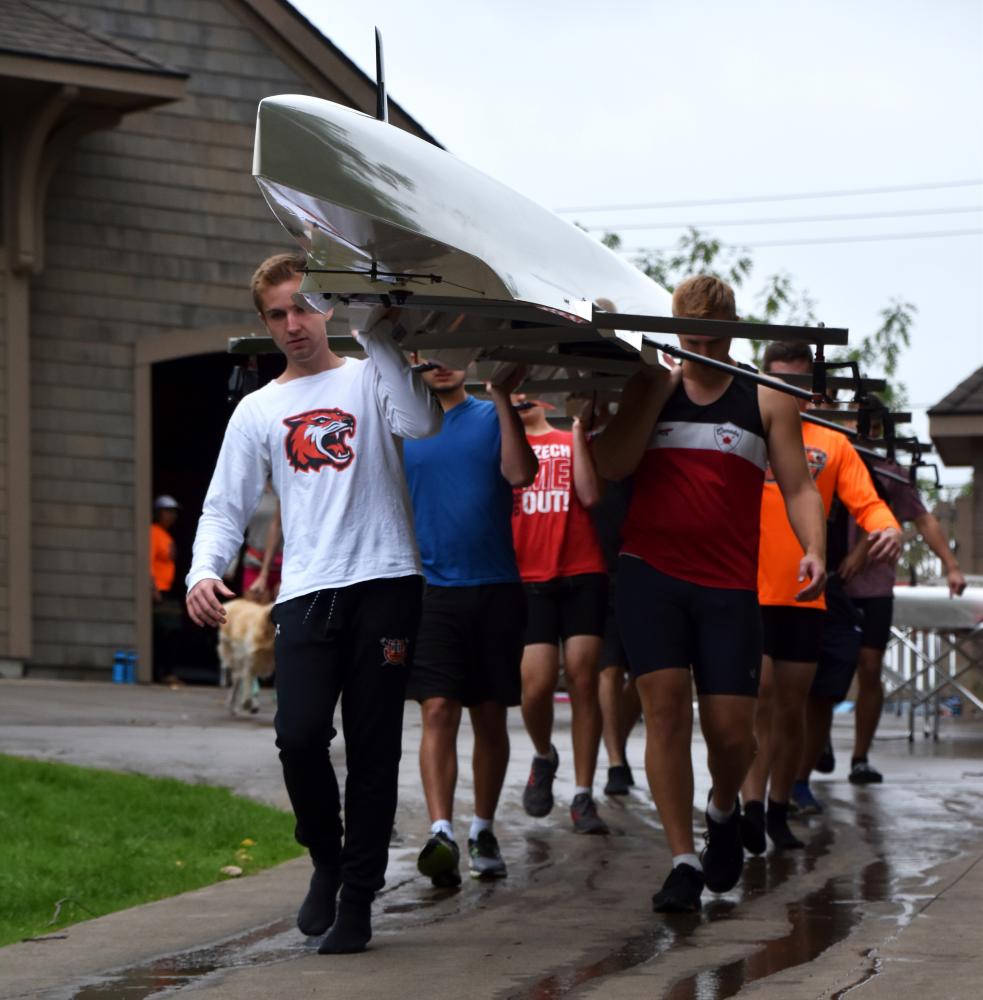RIT's sports related gossip often leaps from locker rooms to the fields and then follows student-athletes to their classrooms. Talk and suspicion of RIT moving to NCAA Division I status has dominated recent conversation within the school's athletic circles.
That being said, the future of RIT's athletic program can be set straight by President David Munson, as well as the executive director of the Athletic Program Louis Spiotti. According to them, the school will be in Division III for the foreseeable future, with hockey as the only exception.
Is RIT Division I Worthy?
However, when looking at RIT athletics it can be easy to see how the rumors began. In the previous 2017–2018 season, men’s crew took gold and a second consecutive win at two Regatta races, women’s soccer advanced to the Liberty League semi-final, women’s basketball advanced to the NCAA Sweet 16 for the first time in history and cheerleading competed at NCA’s National Championships two years in a row — just to name a few.
Although most of our teams have incredible talent and potential, the men’s lacrosse team seemed to have ignited the most gossip of RIT going Division I.
In a recent article, Steve Jaynes, RIT Sports Information director, stated “The 2018 RIT men’s lacrosse team won a program record 21 games in 2018. The Tigers won their seventh straight Liberty League championship, and advanced to the NCAA Division III Tournament for the ninth straight season and 20th time in program history.”
It was the men’s lacrosse team that began to make people understand that in order for one team to transition to Division I, the rest of RIT’s athletic teams would have to as well. The NCAA now requires that if one sport moves divisions, they all have to go. This was indeed confirmed by Munson and Spiotti themselves.
Division III to Division I
In addition, big crowds and loud attention is usually a bigger part of the life for student athletes who chose to go Division I. This atmosphere of athletic reliance is different from what RIT currently offers.
RIT's Future
Most people are not aware of the negative consequences of going Division I. For example, Munson expressed hesitation to petition for Division I because of financial reasons.
“In Division I, not only is the school allowed to give scholarships up to some maximum in each sport, but you're actually required to give scholarships," said Munson. "So DI is expensive from the standpoint that we would have a large number of athletes with full tuition waivers, and so that, of course, is another factor: could the institution afford to do that?”
He also raised concern over the student athlete GPA; it is not unusual for it to be higher than the campus average.
Spiotti is also wary of transitioning into Division I.
“We feel good about the association. It would take a very thorough examination of the pros and the cons. Whether or not moving it that direction really would benefit us as a university," Spiotti explained. "First of all, it would be tremendously expensive having to fund a DI program, find a league, upgrade our facilities, hire more coaching staff, provide athletic scholarships — which you know is not inexpensive. It would be costly to the university.”
“I have not heard anything at the university that indicates a desire — an appetite to do that,” Spiotti continued.
Furthermore, he strengthened his claims by adding that it is more difficult than it may seem to move sports to Division I.
“The next logical move is Division I for lacrosse? See, you don’t understand it — we can’t do that. [We] can’t just pick a sport and move it to Division I,” stated Spiotti.
As a result of transitioning to DI, Spiotti revealed that RIT could end up making some significant changes.
“And then [we have] the possibility of dropping some sports, to be able to afford that. That would be a possibility. Lots of institutions that move to DI find it necessary to reduce the number of teams that they have, so that they can make those ones that exist stronger. There’s been no talk about that. There’s been no suggestion that we drop sports,” stated Spiotti.
For those reasons, RIT has a long comfortable future in Division III. Although student athletes may miss out on athletic scholarships, the passionate determination that you can find in each player and team, fills the void of everything else.
Go to any soccer game, crew race, cheerleading competition or hockey game and witness for yourself the teams expressing their love for the sport they play. For both Munson and Spiotti and most student athletes, we are fierce in our personal pursuits to make RIT a top Division III school.








